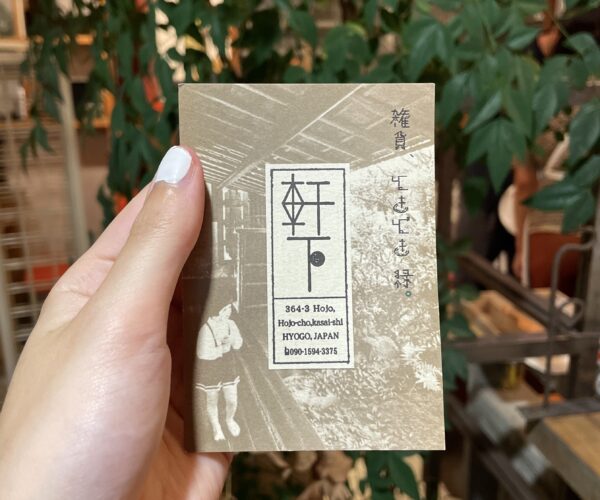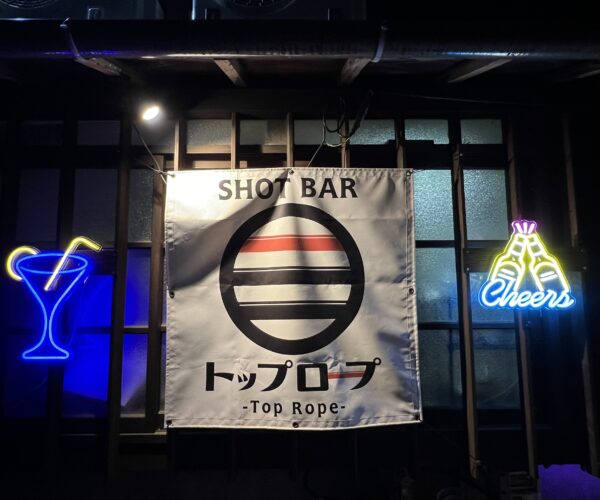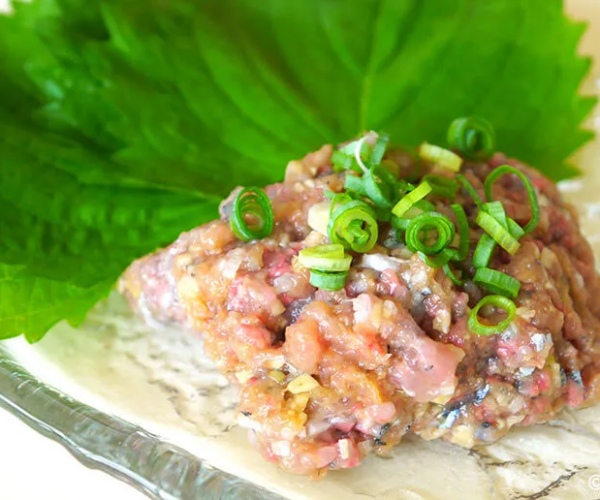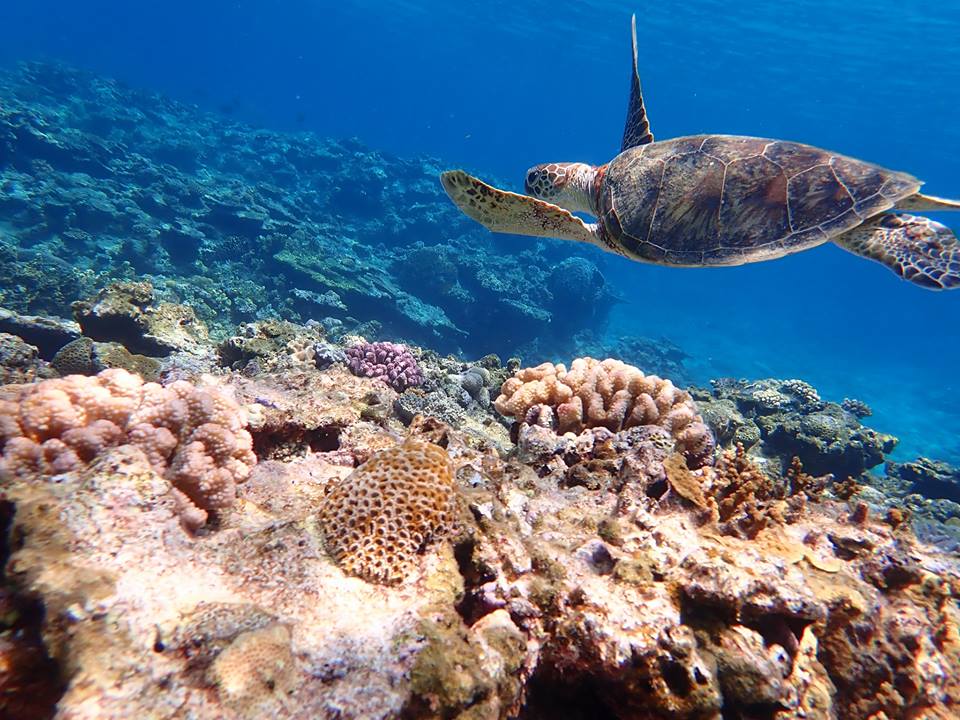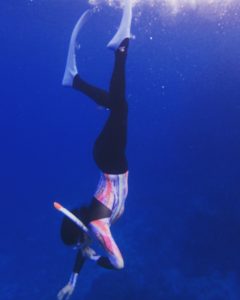Laura Pollacco (Kanagawa)
This article originally featured in the May 2019 issue of Connect.
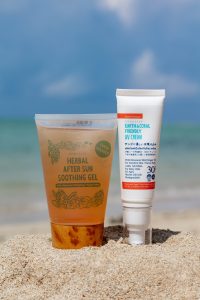 The sun season is now upon us! It’s going to get very hot in certain places, and many of you may have already started hitting the beach to swim and soak up that sunshine. What you mustn’t forget, though, is to protect your skin. UV rays can damage your skin, causing fine lines and wrinkles as well as more extreme consequences like increasing your risk of skin cancer. We want to enjoy the sun and the sea, but we need to be safe about it!
The sun season is now upon us! It’s going to get very hot in certain places, and many of you may have already started hitting the beach to swim and soak up that sunshine. What you mustn’t forget, though, is to protect your skin. UV rays can damage your skin, causing fine lines and wrinkles as well as more extreme consequences like increasing your risk of skin cancer. We want to enjoy the sun and the sea, but we need to be safe about it!
However, it’s not just our own safety that we need to be thinking about. What you may not have been aware of is that the sunscreen we wear to protect ourselves is actually damaging the ocean, especially coral. Sunscreen can contain chemicals that bleach the coral badly, so much so that Hawaii, certain areas in Mexico, and now some Carribbean Islands have started to ban harmful sunscreens altogether. Connect spoke with Yukino Goya, who has developed her own brand of coral-friendly sunscreen, to help educate us on how to keep ourselves and the planet safe.
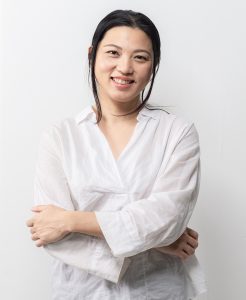 Q: Hello, Yukino! First off, please tell us a little about yourself. Where you grew up, your hobbies and passions, etc.
Q: Hello, Yukino! First off, please tell us a little about yourself. Where you grew up, your hobbies and passions, etc.
A: Hello. My name is Yukino Goya, and I am an Okinawan local. I spent my early 20s living in Tokyo for 5 years and New York for 3 years. I’ve now been back and living in Okinawa for more than 10 years. I like watching anything comedic, and my passion is world peace.
Q: What first made you aware of the problem of coral bleaching and its connection to sunscreen?
A: I was at a famous beach for snorkelling when I was told by a diver that I was killing coral because I was putting on a lot of sunscreen on my body when I was about to go into the water. At first I couldn’t really understand what this person was talking about. I was aware of my skin getting irritated when I used the regular sunscreen, and I was aware of the fact that the ocean has changed a lot in these 20 years as Okinawa has become a very popular travel destination. More people are trying scuba diving and snorkeling than ever before when they come to Okinawa. So I was aware of these things but not aware of the connection between sunscreen and coral bleaching until I googled it after being told I was killing the coral.
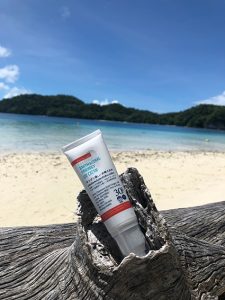 Q: How exactly does sunscreen damage the coral?
Q: How exactly does sunscreen damage the coral?
A: Some of the ingredients that combat harmful UV rays for humans can, in turn, harm the coral. Experts say that just one drop of a popular UV chemical ingredient, oxybenzone, found in sunscreen in a body of water the volume of six Olympic swimming pools can harm a coral’s DNA. It is also toxic to humans. There are too many studies you can look up. It is very surprising. You might want to stop reading it.
Q: I personally haven’t seen many big branded sunscreens sell themselves as being coral-friendly. Do you think this will change?
A: No. I don’t think it will change for a while. Now I see many sunscreens which have stickers saying “REEF SAFE*” ー* as they don’t contain oxybenzone or octinoxate, two ingredients which are going to be banned by the regulations of Hawaii. But there are more, similar ingredients in those sunscreens which scientists also say are not reef-friendly. Palau decided to ban even more toxic chemicals than Hawaii to avoid this scam from sunscreen companies that are not actually making reef-safe sunscreen.
To make products eye-catching for customers, brands have to use various ingredients to achieve efficacy. The majority of the people will continue to choose their beauty over being eco-friendly. Big brands have to keep up their marketing game, so they can’t afford to use high cost, all-natural ingredients for waterproof sunscreen in order to save costs for their big price ads.
Q: How did you go about developing your sunscreen?
A: I started buying many reef-safe sunscreens in America first and checked what each brand was doing and why they picked their ingredients. Then I made a sample at home and started talking to a cosmetic factory in Japan (though now I use one in Thailand). I was then contacted by a scientist based in Israel, a member of the Haereticus Environmental Laboratory, who specialized in sunscreen. They were able to give me some good advice. That was really helpful. This came about because my friend tweeted about me in English, so somehow this scientist found me and had the opportunity to visit Okinawa for a forum, and I was able to meet him and receive his advice in-person.
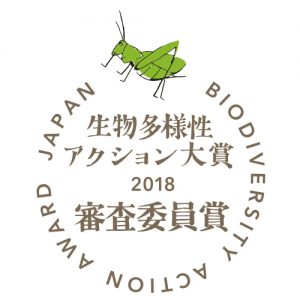 Q: Your product has won a sustainability and environmental award. Can you tell us about it and how it felt to win?
Q: Your product has won a sustainability and environmental award. Can you tell us about it and how it felt to win?
A: Receiving the 2018 Biodiversity Action Award Japan was very rewarding because it’s not an easy business here in Japan. I didn’t know how hard it would be to talk about how coral-safe sunscreen is necessary here in Okinawa. People will always be more interested after I am awarded or appear in the media, so it is the fastest way to open people’s minds. I actually stopped doing active sales activities because many people don’t want to hear about the fact that regular sunscreen is harming coral reefs through brands who are making “coral-safe” sunscreen. It is hard for people to understand because coral safety is a very new concept here. So I really needed that award!
Now, people who agree with what I am doing get in contact; they support us and spread the message to more people in a way that people understand. So my main goal for increasing sales activity is to be more reachable.
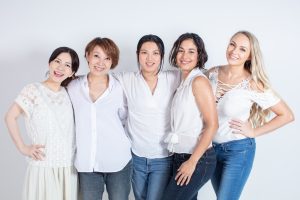 Q: According to your website, you have a strong female team working together to help brand and market this product. Was it important to you to create a workplace that allowed for women to work from home and find flexibility with their work life and family life?
Q: According to your website, you have a strong female team working together to help brand and market this product. Was it important to you to create a workplace that allowed for women to work from home and find flexibility with their work life and family life?
A: My main staff in charge of purchase orders are working from home. We are trying to develop how we can make it work for us. It is very experimental, and to do that, my online shopping site says “We ship product within 3 days, if you are in a hurry please let us know.” One of my main staff has a baby that is 2 years old. It is not difficult for her if she has 3 days to ship the product. I think she and I are very happy with this work style. I want to see the possibilities for what a small (micro) company can do to contribute to our society.
Q: Do you have any big plans for yourself and the company coming up?
A: YES! I am going to start a new social business which will be related to trash on the beach. I am very excited!
Picking up trash on the beach can be a fun activity during a trip to Okinawa. This program offers super easy steps for clean beaches and making connections with locals and people who want travelers to join this activity whenever you want. This will make a human circle of gratitude. This project will start before autumn 2019.
I will announce this project on my www.coralisfriend.com page in many languages and also on my instagram @yukkigoya.
Every person is an influencer. I want people to realize this. We are the future.
Q: What message would you like to tell Connect and our readers in regards to the ocean and doing our part?
A: For me, my idol is Sylvia Earle, a marine biologist, explorer, author, and lecturer. She is such a charismatic person. But we won’t have her forever. We tend to think “There is an amazing person; this person would do their job to change the world.” And we just sit there and listen and do nothing.
I want all ordinary people, like myself, not just scientists, not pop stars, to be aware that WE CAN SHARE a person like Sylvia’s thoughts throughout the world. We can think the same way she does, so we don’t need to wait for another idol to show up after our idol is gone. Right now she is alive; we can watch her talk and learn many things. The great part is that she has already done the study for us. Now we can act. Every person is an influencer. I want people to realize this. We are the future. We are not alone and we are connected globally. My passion is world peace. I think that with an environmental issue, many people can share the same goal and be connected to hit our goal together. I think this is the closest thing to world peace that I know.
You can buy Yukino’s coral friendly sunscreen and help protect the ocean’s ecosystem here: https://naturalshop.official.ec/

